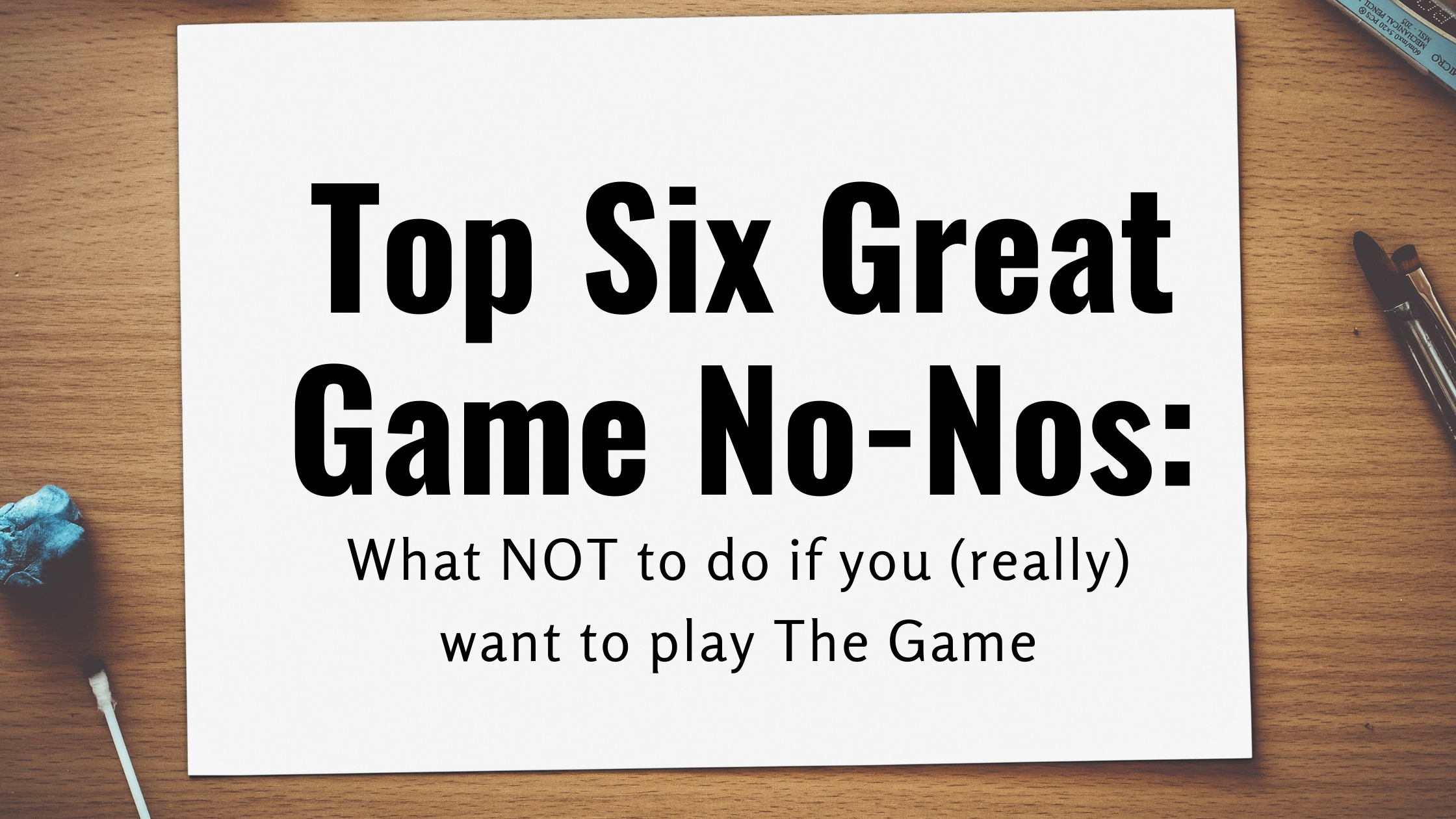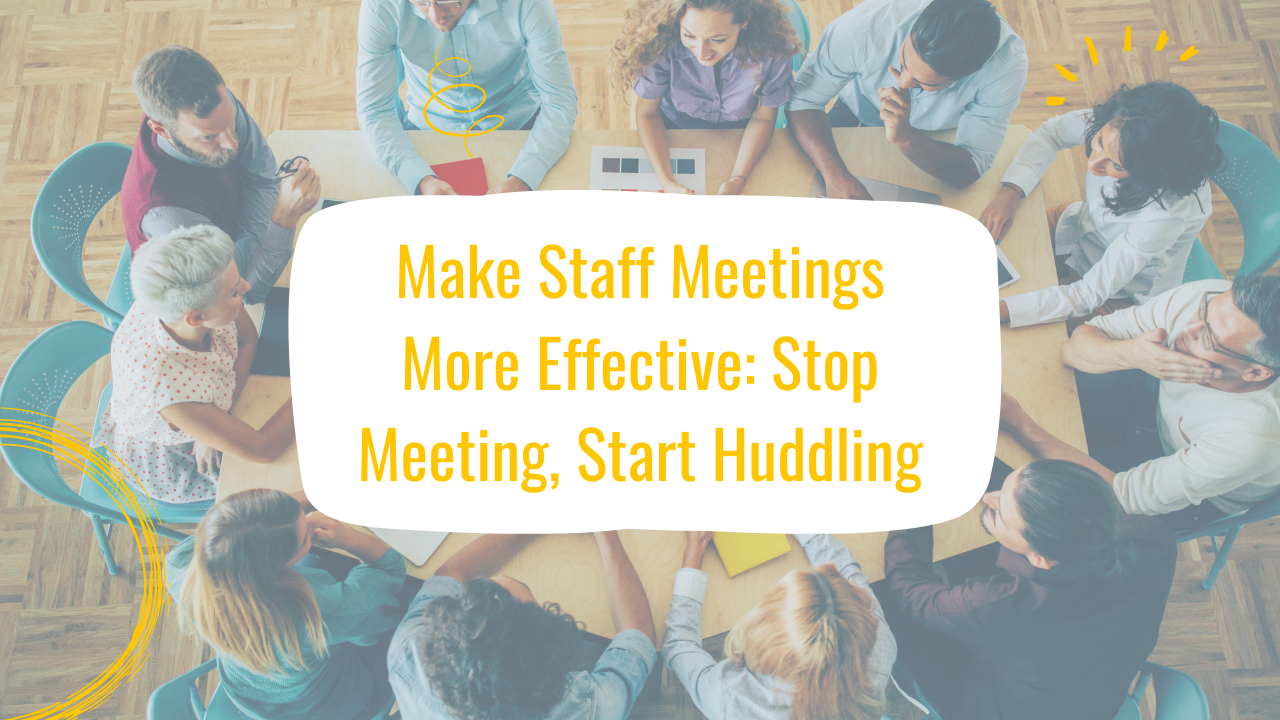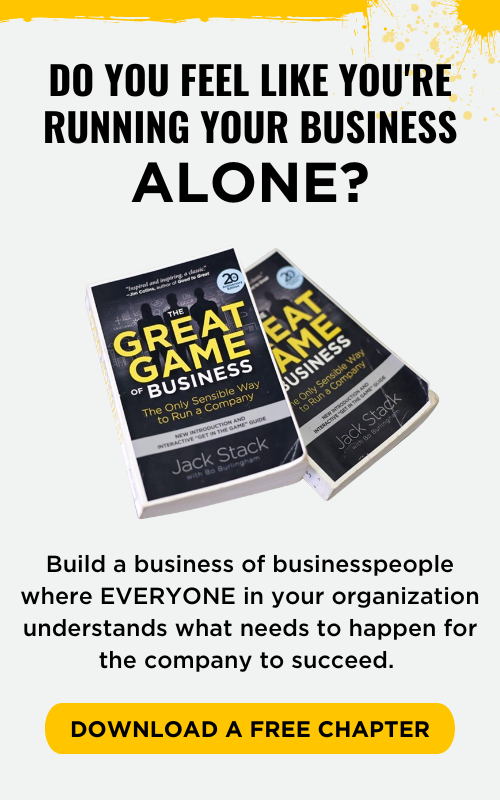At The Great Game of Business®, we’ve seen the strongest companies thrive because of one key factor: a healthy workplace culture. It’s what keeps top talent engaged, helps businesses navigate challenges, and fuels growth year after year.
Read More
If you're running a small business, the word “growth” is probably always on your mind. You're juggling a million things, wearing multiple hats, and constantly looking for that edge, that strategy, and a playbook to take you to the next level. You've got passion, grit, and a great idea, but sometimes, translating that into consistent, sustainable small business growth feels like trying to solve a never-ending puzzle.
Read More
Many companies beginning their GGOB journey ask, How often should your team Huddle? What does a Huddle look like? Those just starting out with the Great Game process often fear that these Huddles will be “too time consuming” or “just another meeting.” The truth is that Huddles, when done well, will actually save you time because they improve communication and the execution of tasks. Here, we've broken down each type of Huddle:
Read More
2021 seemed to fly by, at least here at The Great Game of Business. We were planning our year just yesterday, and then, BAM, the year was over. At least, that is how it felt. Looking back on 2021 made us take stock of the most read Great GameTM blogs. In case you missed them, here they are in order: #8 - 10 Easy Ways Leaders Can Express Appreciation in the Workplace Individuals in the workplace need to feel appreciated in order to enjoy their job, do their best work, have positive work relationships, and stay with their organization long-term. The key ingredient in meaningful, significant, and effective appreciation is individualization—expressing appreciation in the recipient’s preferred “language.” Varying the ways company leadership communicates appreciation will improve chances of hitting the mark, so we’ve compiled 10 ways leaders can express appreciation in the workplace and foster positive work relationships in order to establish a recognition culture. <>
Read More
For nearly four decades, SRC Holdings have been evangelizing the importance of tapping into the universal human need to win. The Great Game of Business® educates your people in the rules of business, rallies them around a common goal, empowers them to see and improve the score, and engages them by allowing them to share in the rewards— What we call a Stake in the Outcome®—presenting them with the opportunity to win as a team. If you want to see success the way SRC has for almost four decades, you must start with communication. You need a system to ensure that you get the most out of your meetings. That doesn’t mean you need one identical to SRC’s meetings, or Huddles as we call them. On the contrary, your system will inevitably look, sound, and feel very different, as well it should. Companies are as diverse as people, and nothing is more distinctive than how you communicate. You have to develop a language and style with which you and your people feel comfortable, which fits your business personality. You will also have to adapt other companies’ techniques to your circumstances, and you may well have to invent new methods of your own.
Read More
Huddles are daily or weekly meetings that drive employee engagement and serve as a self-correcting measure to keep your company on the path toward achieving its goals. Huddles are the linchpin of any successful open-book implementation, but if you find engagement and understanding are low in your organization, you’ve learned an important lesson: Huddles can’t do it alone. In order to foster cultural adoption and high involvement in the planning and execution of your organization’s goals, you’ve got to make the process accessible to your team. Here are three keys for reaching your team and driving their participation:
Read More
Top Six Great Game No-Nos: What NOT to do if you (really) want to play The Game During the time that we’ve been helping others implement The Great Game of Business, we’ve seen the ups and downs and are often surprised by the number of people who are “fair-weather Great Gamers”, meaning they have passion and intent to play The Great Game of Business®, but are missing the mark in one or more areas. Here are the top six (because five just wasn’t enough) Great Game No-nos:
Read More
Great Game Huddles (what others may mistake for typical staff meetings) provide a communication rhythm where everyone is kept informed, involved, and engaged in the progress of The Game.
Read More
Even if you feel you have your staff meetings down to a science, you may still struggle with keeping your employees engaged, informed and focused on the company’s goals. One of the biggest challenges in business today isn’t planning or even strategy; it’s the ability to execute company goals. Why? Many companies fail to consistently and openly discuss their wins and losses.
Read More
Originally published in AEPNow on Monday, January 4, 2021 A Shreveport line mechanic installs new equipment on a pole near Line Avenue. Shreveport construction crews are completing capital projects at a faster pace than ever before thanks to a strategy that helps them understand the financial impact of their work. This year, the Shreveport District initiated a weekly schedule of pole replacements and other projects to build long-term assets.
Read More

.png)













.png)




-5.png)

